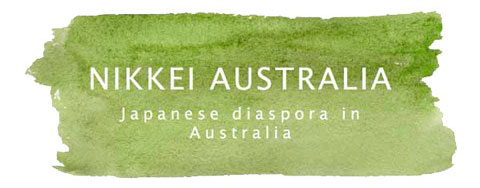A review of two books relating to Nikkei Australian internment and war experiences by Nikkei Australia member Hugh de Ferranti has been published in Commons online journal.
Citation: Hugh de Ferranti (2023): Lives, deaths and precarious worlds, Commons, Vol 2; ISSN 2436-9187
Commons is an online journal edited and issued by Future of Humanity Research Center, Tokyo Institute of Technology.
This is a review of two publications: Noreen Jones (2002), Number 2 Home: A Story of Japanese Pioneers in Australia, Fremantle Arts press and Toyofumi Ogura (1948/1997), Letters from the End of the World: A Firsthand Account of the Bombing of Hiroshima, translated by Kisaburo Murakami and Shigeru Fujii, Kodansha USA (original version in Japanese『絶後の記録:広島原子爆弾の手記 亡き妻への手紙』中央社)
Excerpt from review:
‘I have chosen to write about two books firstly because their existence and contents meet in the person of Joseph Clement Kisaburo Murakami (1927-2022), who as a child lived in the small Japanese communities of remote places in northwestern Australia, the society depicted in one of the volumes, then as an adult Nikkei “return immigrant” in Bubble-era Tokyo co-translated the other volume into English. These books are also conjoined by experiences of the war, which brought an end to the world portrayed in Number 2 Home, and utterly overturned the lives led by Joe Murakami and Ogura Toyofumi 小倉豊文, respectively—in Joe’s case until December 8th 1941, and in Ogura’s until August 6th 1945. For both men, the world as they knew it ended on those dates.
Marginality can be contemplated in relation to both these texts and individuals: Joe Murakami, as an Australian of Japanese heritage who emigrated at age 35, was to some extent a culturally peripheral figure for most of his life, while Ogura sought to “renounce the world” by becoming a Buddhist ascetic after what he had experienced in Hiroshima. Although dissuaded from doing so, he was gradually rendered a peripheral voice (along with many thousands like him), in effect an echo of a discomforting recent past pushed to the margins of political discourse, in a Japan where economic regeneration, nuclear-based energy sufficiency and even rearmament for “self defense” were prioritised by LDP administrations under U.S. patronage. From at latest the mid-1970s, further memorialisation of the suffering caused by deployment of nuclear weapons and assent to calls for acknowledgment of the ethical case for reparation were beyond consideration for both sides of the Japan-US alliance.’
『コモンズ』第2号
発行日 2023年2月15日
ISSN 2436-9187
発行
東京工業大学 科学技術創成研究院 未来の人類研究センター
〒152-8550 東京都目黒区大岡山2-12-1
03-5734-3892
編集委員 木内久美子* 河村彩 多久和理実
編集協力 鈴木悠理* 大和田美桜 川﨑愛 佐々風太 中原由貴
印刷所 SEWI






Recent Comments